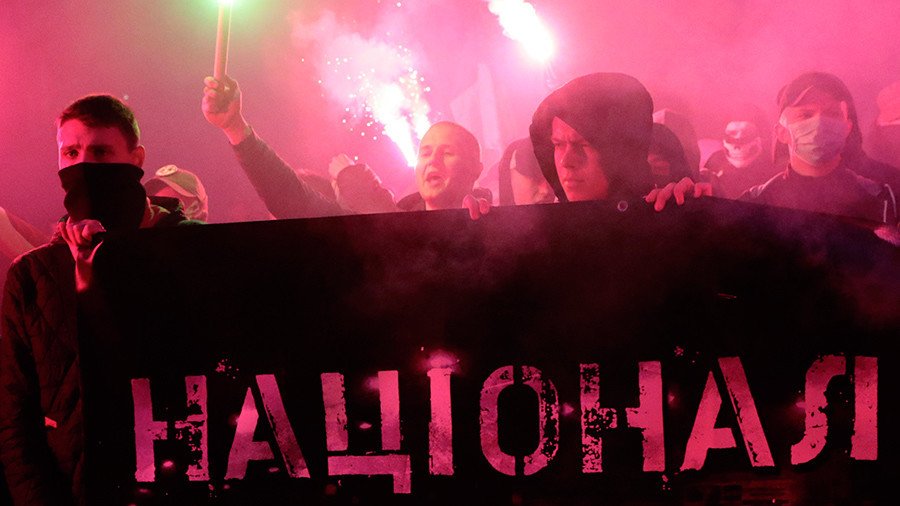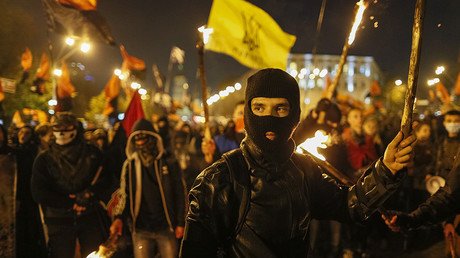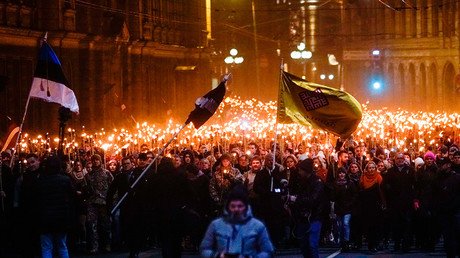US & Ukraine are alone in rejecting Russia’s anti-Nazism resolution at UN

The UNGA Third Committee overwhelmingly passed a Russian-introduced resolution on combating the glorification of Nazism. The US did not break with its annual tradition of saying ‘no’ during the symbolic vote. Ukraine also voted against.
The Moscow-drafted resolution against whitewashing and attempting to glorify Nazi ideology was approved by a majority in the United Nations General Assembly (UNGA) human right committee on November 16. The resolution, introduced each year, was supported by 125 delegations, 51 states abstained, and the only countries opposed were the US and Ukraine.
Introducing the resolution, Russian representative Anatoly Viktorov said that neo-Nazis events “clearly resembling similar rallies in Nazi Germany” still occur in some countries. The authors of the draft also condemned the whitewashing of former members of the SS and Waffen SS, and attempts to grant individuals who supported or collaborated with the Nazis the status of national hero, which has been seen in recent years in some former Soviet states.
“Although Nazism was defeated over 70 years ago, and although the verdict of the Nuremberg International Military Tribunal once and for all answered the question as to who represented the forces of good and the forces of evil during World War II, some people continue to doubt those great gains,” Viktorov said.
During the vote, the US representative called the draft “a cynical exercise and an annual power play by one country against its sovereign neighbors,” and suggested 20 amendments to the resolution. The move met stiff opposition from the Russian delegation, who said the amendments would change the core principles of the document.
“Representatives of the US delegation were not present at these talks,” the Russian delegation said, adding that the amendments “are openly provocative because they aim to drastically alter the essence and nature of this initiative.” The proposed amendments were subsequently rejected by the committee.
The resolution to ‘Combat glorification of Nazism, Neo-Nazism and other practices that contribute to fueling contemporary forms of racism, racial discrimination, xenophobia and related intolerance’ has been submitted by Russia annually since 2005. The US has never supported the document, and this time was no exception, despite this year’s wave of nationalist protests in the US, including the infamous march in Charlottesville, Virginia in which one person was killed after a car rammed into a crowd.
“We regret and are disappointed by [the continuous] unwillingness of the US to support the document given that their persistent attempts to explain their position by concern for the freedom of expression do not appear convincing,” the Russian mission in the US said following the vote.
While the US has always been against the resolution, Ukraine did not hop on the bandwagon until 2014. Previously, Kiev was among the abstainers. This year saw Canada leaving the ranks of those voting against, which it had done for several years.
Following last week’s vote, the resolution now moves on to the 193-member body for a vote, where it is expected to be approved in December.














